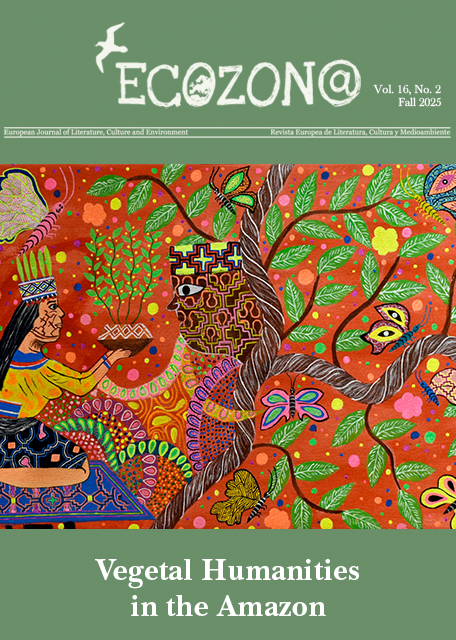Gardening the Planet: Literature and the Reimagining of Human/Nature Relations for the Anthropocene
DOI:
https://doi.org/10.37536/ECOZONA.2023.14.1.4877Schlagworte:
garden writing, human/nature relations, the Anthropocene, Jean-Jacques Rousseau, Michael PollanAbstract
Gardening as an activity characterised by attentiveness to nature and willingness to adapt to and care for it, and the idea of gardening the planet are attracting growing interest in the context of debates on the Anthropocene. Garden writing exists in forms ranging from autobiographically framed essays describing plants and their care to prose fiction and even poetry. This article is concerned with its contribution to reimagining human/nature relations in a way which is particularly relevant in the Anthropocene: homo hortensis is a conception of humanity as an integral part of nature, dwelling actively in it and enhancing it rather than consuming or destroying it. Jean-Jacques Rousseau’s Julie or the New Heloise (1761) and Adalbert Stifter’s Indian Summer (1857–9) are examined as Early Anthropocene novels which anticipate through the gardens they depict aspects of Anthropocene thinking which find more explicit formulation in Michael Pollan’s work of nonfiction garden writing, Second Nature (1991).
Downloads
Downloads
Veröffentlicht
Ausgabe
Rubrik
Lizenz
Authors who publish with this journal agree to the following terms:
a) Authors retain copyright and grant the journal right of first publication with the work simultaneously licensed under a Creative Commons Attribution License that allows others to share the work with an acknowledgement of the work's authorship and initial publication in this journal (CC BY-NC for articles and CC BY-NC-ND for creative work, unless author requests otherwise.
b) Authors are able to enter into separate, additional contractual arrangements for the non-exclusive distribution of the journal's published version of the work (e.g., post it to an institutional repository or publish it in a book), with an acknowledgement of its initial publication in this journal.
c) Authors are permitted and encouraged to post their work online (e.g., in institutional repositories or on their website) prior to and during the submission process, as it can lead to productive exchanges, as well as earlier and greater citation of published work (See The Effect of Open Access).










